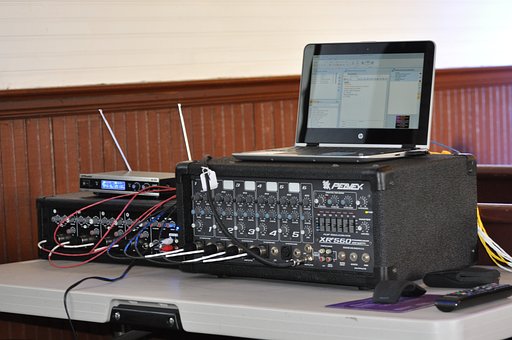

Leave a message

IP network PA systems, also known as networked audio systems or networked PA systems, have become increasingly popular in recent years. These systems use Internet Protocol (IP) technology to transmit audio signals over an Ethernet network.

Flexibility and Scalability: IP network PA systems offer flexibility and scalability that traditional PA systems cannot match. With an IP network PA system, you can easily add or remove speakers, adjust the volume levels, and configure the system to suit your specific needs. This makes it an ideal choice for large facilities or those that require frequent changes to their audio system.
Cost Savings: While the initial cost of an IP network PA system may be higher than a traditional PA system, the long-term cost savings can be significant. By using existing network infrastructure, you can avoid the need for additional wiring and installation costs. Additionally, the ability to remotely manage the system can save on labor costs.
Improved Audio Quality: IP network PA systems use digital audio signals, which can provide higher quality audio compared to traditional analog systems. This can result in clearer and more intelligible announcements and music playback.
One of the biggest advantages of IP network PA systems is their ability to integrate with other systems

For example, an IP network PA system can be integrated with a security camera system to provide audio alerts in the event of a security breach. This can help to quickly notify staff of potential security threats and allow them to take appropriate action.
In addition, IP network PA systems can be integrated with access control systems to provide audio announcements for visitors and employees. This can help to improve the overall visitor experience and make it easier for employees to navigate the facility.
Another example of integration is with fire alarm systems. An IP network PA system can be configured to automatically override other audio sources and play evacuation announcements in the event of a fire alarm. This can help to quickly and effectively evacuate the building in the event of an emergency.
Another advantage of IP network PA systems is centralized control

With a traditional PA system, individual speakers must be controlled separately, which can be time-consuming and difficult to manage. With an IP network PA system, you can control the entire system from a central location, including scheduling announcements or music playback, adjusting volume levels, and monitoring the status of individual speakers.
This centralized control can help to improve the efficiency of the system and reduce the workload for staff. For example, a school administrator can use a web-based interface to schedule morning announcements to play across the entire campus, without the need to physically visit each individual speaker.
In conclusion, IP network PA systems offer numerous advantages over traditional PA systems, including flexibility, scalability, integration with other systems, centralized control, cost savings, and improved audio quality. Whether you are managing a large facility, a school campus, or a retail store, an IP network PA system can provide an effective and efficient solution for all of your audio needs. When selecting an IP network PA system, be sure to consider the specific needs of your facility and choose a system that can meet those needs while offering reliable performance and ease of use.
 【DSPPA Demo】PAVA8000 EN54 Voice Evacuation SystemNovember 12, 2020Abstract: DSPPA PAVA8000 EN54 Voice Evacuation SystemToday, we are gonna show you a demo about our PAVA8000 EN54 Voice Evacuation System.PAVA8000EN54 Voice Evacuation System can not only support manua...view
【DSPPA Demo】PAVA8000 EN54 Voice Evacuation SystemNovember 12, 2020Abstract: DSPPA PAVA8000 EN54 Voice Evacuation SystemToday, we are gonna show you a demo about our PAVA8000 EN54 Voice Evacuation System.PAVA8000EN54 Voice Evacuation System can not only support manua...view The National Standard Approval Meeting held in BeijingJuly 19, 2019The National Standard Approval Meeting held in BeijingThe approval meeting of the National StandardTechnical standard of public address system engineeringis held in Beijing on July 16, 2019. Xue Chang...view
The National Standard Approval Meeting held in BeijingJuly 19, 2019The National Standard Approval Meeting held in BeijingThe approval meeting of the National StandardTechnical standard of public address system engineeringis held in Beijing on July 16, 2019. Xue Chang...view